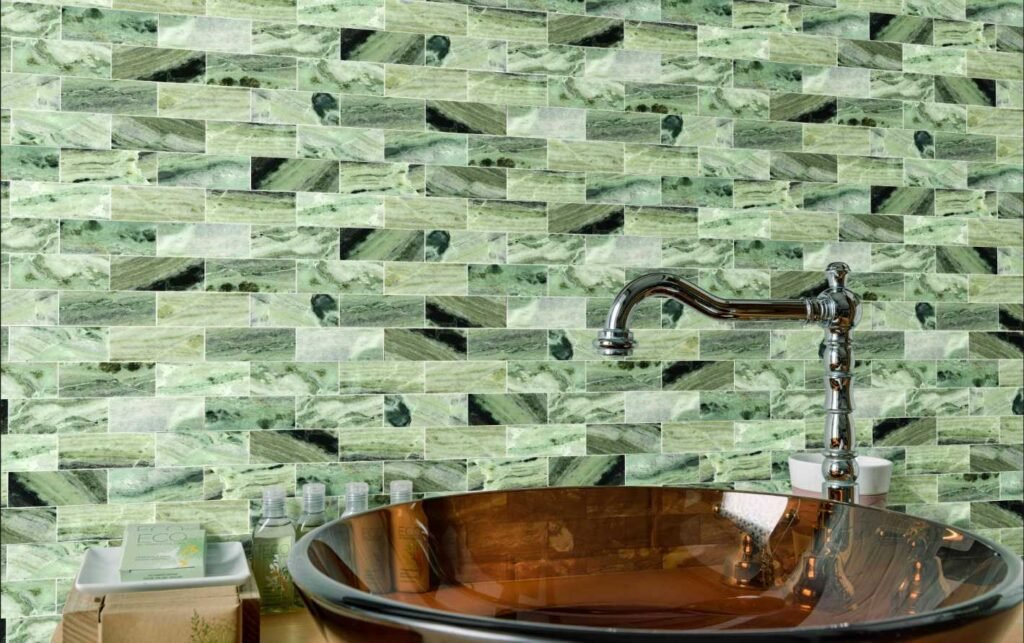Introduction
Mosaic, an ancient decorative material, has a history dating back thousands of years. With advancements in modern technology, the design and application of mosaics have expanded significantly. Especially in interior design, mosaic is not just a decorative material; it is an essential element in expressing spatial aesthetics and cultural connotations. In this article, we will explore the application of mosaic in interior design and provide practical advice to help clients choose the right pool mosaic.
Diversity and Design Possibilities of Mosaic
One of the most distinctive features of mosaic is its diversity. Whether in terms of material, color, or shape, mosaic offers endless design possibilities. Glass, ceramic, metal, stone, and other materials can be selected and combined based on different design needs. Additionally, the variety of colors and shapes in mosaics allows for the creation of rich patterns and textures, making it highly decorative in interior design.
Application of Mosaic in Different Spaces
- Bathrooms and RestroomsThe application of mosaic in bathrooms and restrooms is the most common. Due to its waterproof and durable nature, mosaic is particularly suitable for these moisture-prone areas. Through proper color coordination and pattern design, a unique atmosphere can be created in the bathroom. For example, blue-toned mosaics can create a serene oceanic ambiance, while warm-toned mosaics can add a sense of warmth to the space.
- Kitchens and Dining RoomsMosaic is also widely used in kitchens and dining rooms. As a wall or floor material, it is not only aesthetically pleasing but also easy to clean and maintain. Especially in the backsplash area of the kitchen, mosaic can enhance the visual effect of the space through its diverse designs. For example, using geometric patterned mosaics can add a modern touch to the kitchen, while traditional floral designs can bring a vintage feel to the dining room.
- Living Rooms and BedroomsIn living rooms and bedrooms, the application of mosaic can add texture and depth to the space. As a wall or decorative element, mosaic can create various atmospheres through different materials and design styles. For instance, metallic mosaics can add a luxurious feel to the living room, while natural stone mosaics can bring a sense of natural comfort to the bedroom.
- Pools and Indoor Water FeaturesPools and indoor water features are another important area for mosaic applications. By choosing the appropriate colors and patterns, mosaic can enhance the visual effect of the pool, creating a stunning underwater landscape. Blue and green mosaics are often used in pool design to mimic the natural colors of the ocean or lake. Additionally, using fluorescent mosaics can create a magical lighting effect at night or under artificial lighting.
Advice on Choosing Pool Mosaic
- Durability of MaterialWhen choosing pool mosaics, the durability of the material is the primary consideration. The pool area is exposed to water and chemicals for extended periods, so it is essential to choose materials that are resistant to corrosion and wear. Glass mosaic is often an ideal choice for pools due to its waterproof and chemical-resistant properties. Additionally, high-quality ceramic mosaics are also suitable for pools as they are resistant to wear and high temperatures.
- Color and Design CoordinationColor and design coordination are also crucial in the selection of pool mosaics. Considering the overall style and environment of the pool, choosing colors and patterns that complement the space can enhance its aesthetic appeal. Blue and green are classic choices for pool mosaics as they naturally blend with the color of the water, creating a serene atmosphere. Additionally, unique patterns or custom designs can be selected according to personal preferences to add individuality to the pool.
- Ease of Maintenance and CleaningThe ease of maintenance and cleaning is another factor to consider when selecting pool mosaics. Choosing materials that are easy to clean and resistant to staining can reduce maintenance costs and time. Glass mosaics, with their smooth surface, are typically easier to clean and maintain. In contrast, natural stone mosaics with rougher surfaces may require regular professional cleaning and care.
Conclusion
As a versatile and flexible decorative material, mosaic has a wide range of applications in interior design. Whether in bathrooms, kitchens, living rooms, or pools, mosaics can add unique beauty and personality to spaces through their rich materials, colors, and patterns. When choosing pool mosaics, clients should consider the durability of the material.



